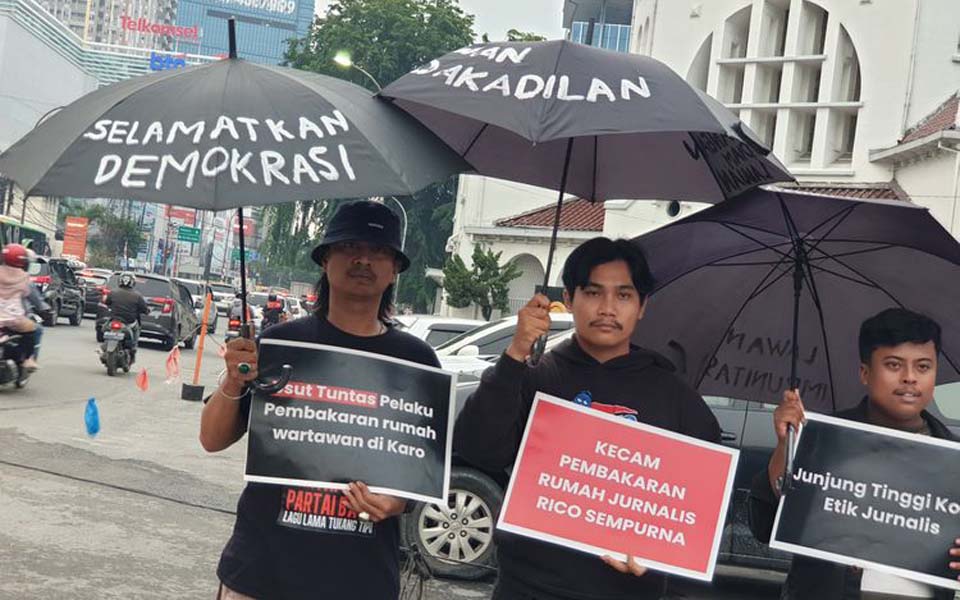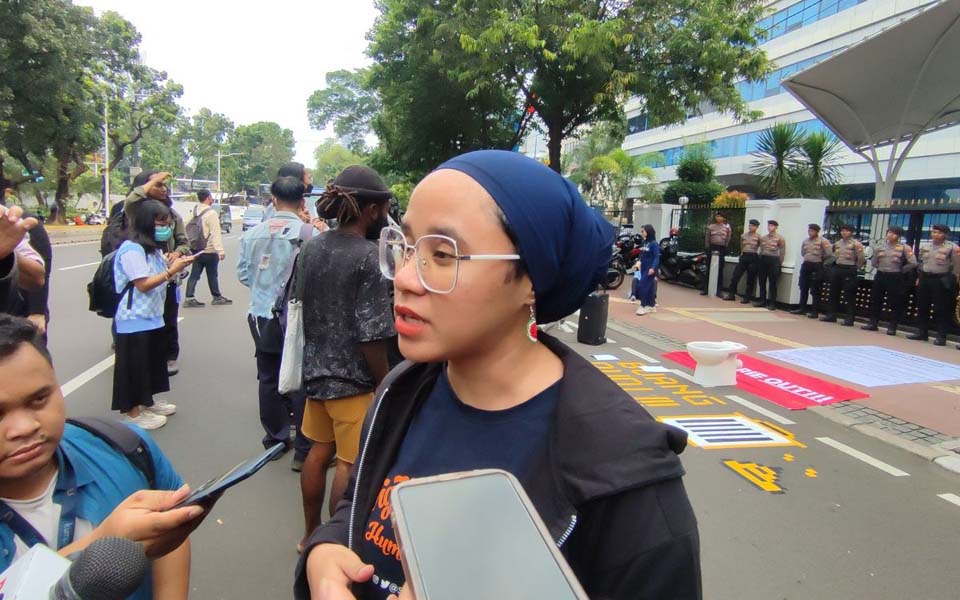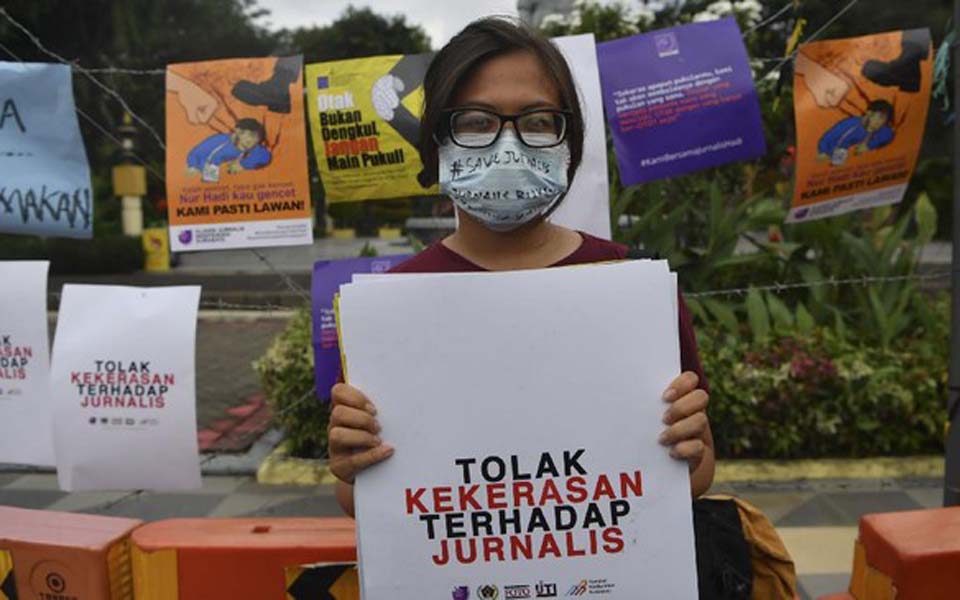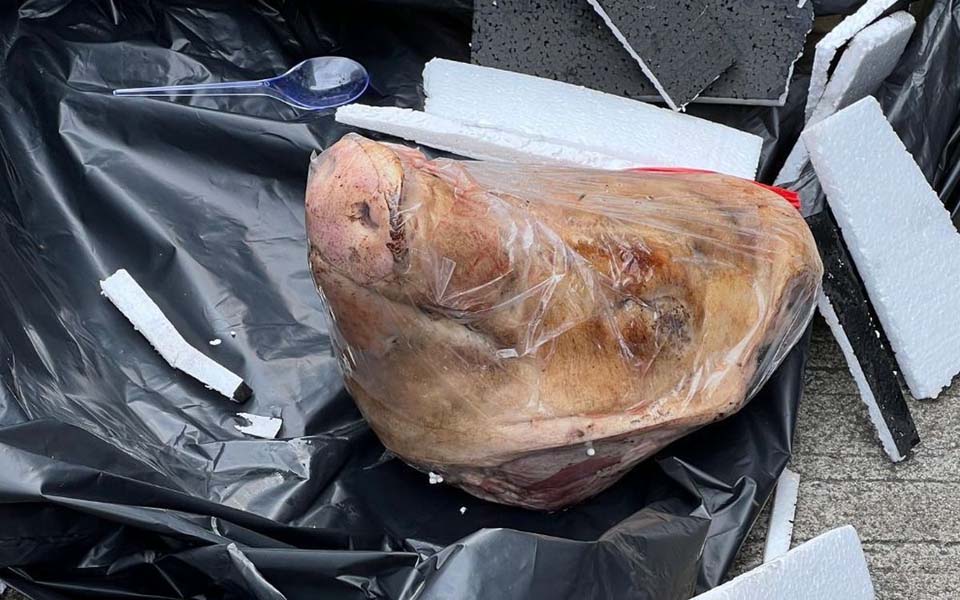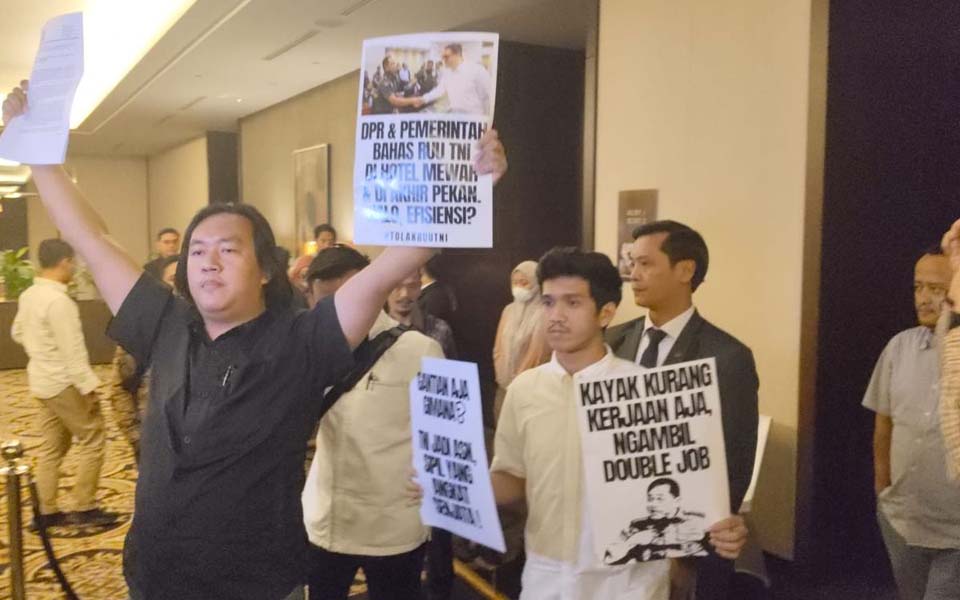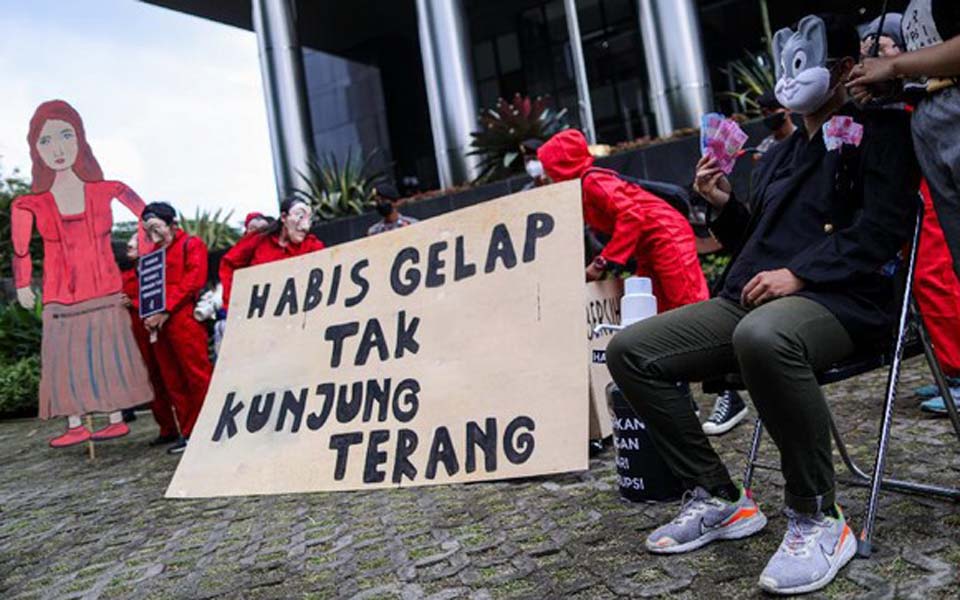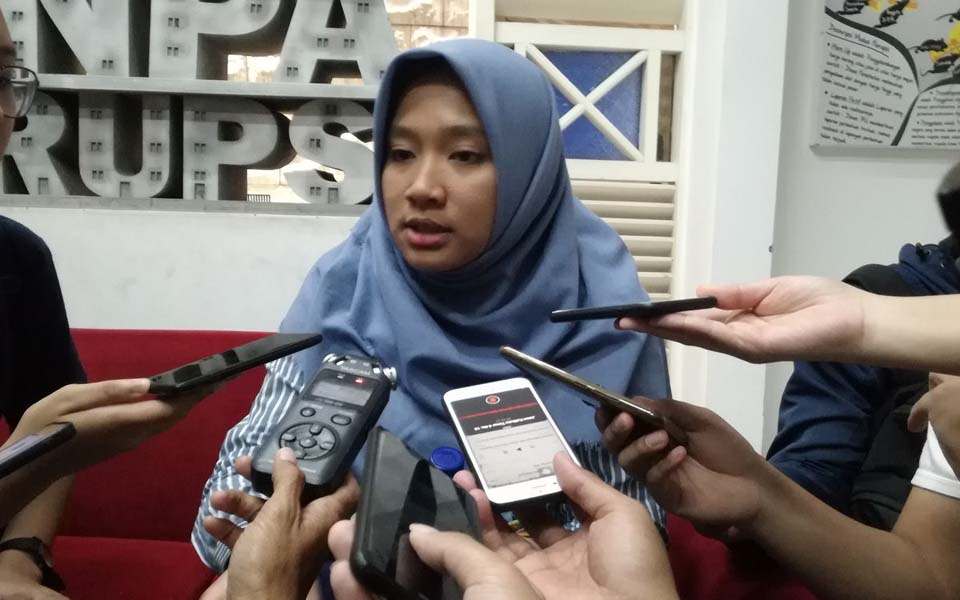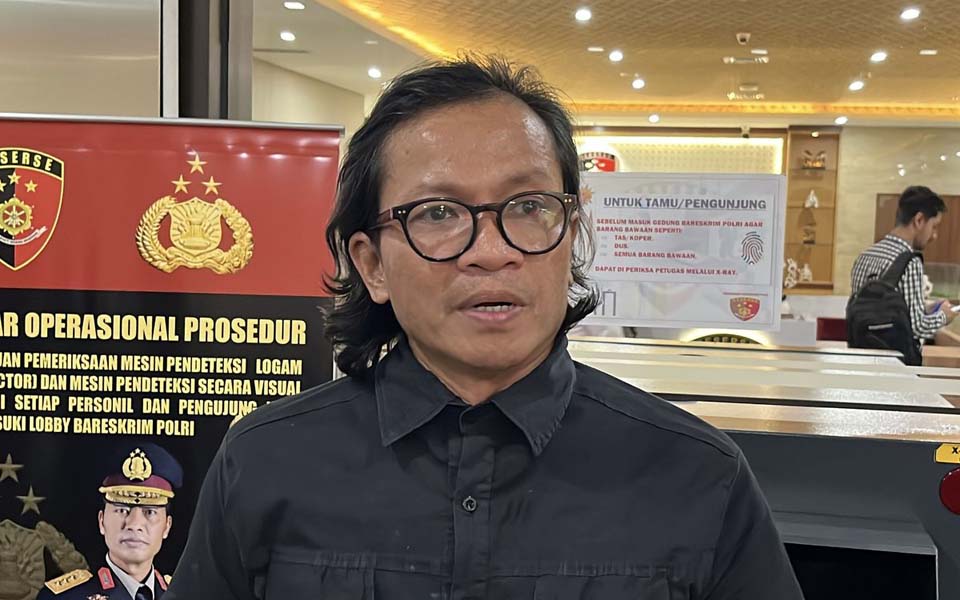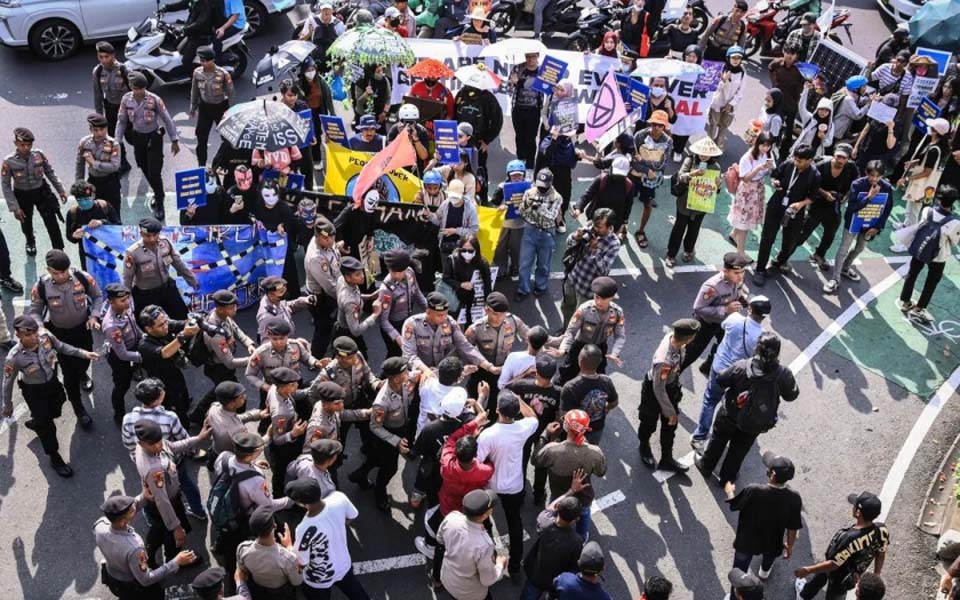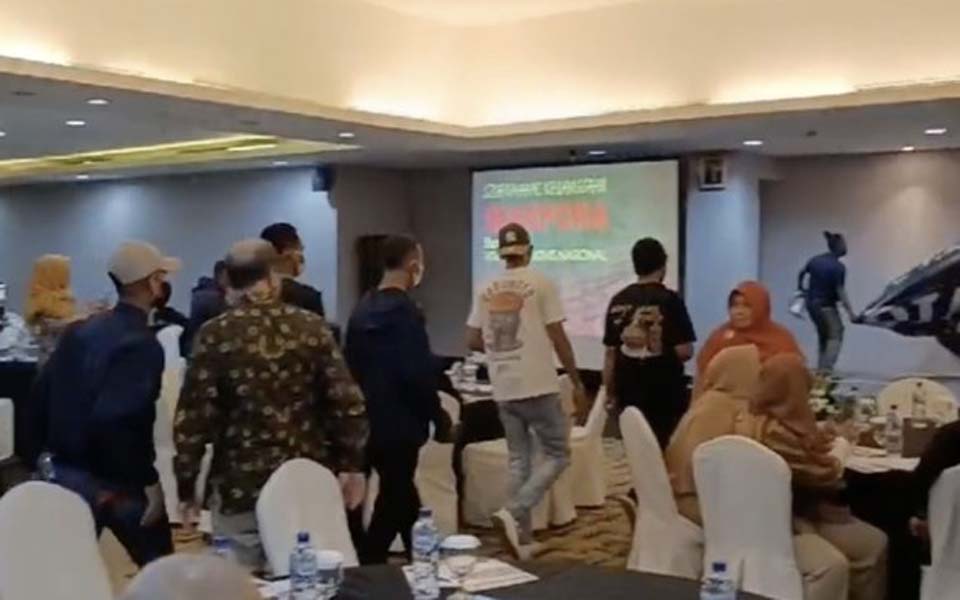Kiki Safitri, Ihsanuddin, Jakarta – Research and Partnership Institute Executive Director Laode M Syarif says that over the decade of President Joko "Jokowi" Widodo's administration (2014-2024) human rights defenders in Indonesia have faced increasingly severe challenges.
"Threats and attacks against them continue to increase, both in physical and non-physical forms, with an alarming intensity", Syarif said in Jakarta on Friday September 27.
Based on a report titled Dark Notes on the Protection of Human Rights Defenders in 2014-2023, of the five highest types of attacks against human rights defenders (totalling 1,609 incidents), the most frequent is judicial harassment, then threats through electronic facilities, terror and threats, expulsion or dissolution and persecution.
Other types of attacks include destruction, attacks causing death, economic attacks or sexual harassment.
On the other hand, the study showed a change in the pattern of attacks between the first period of Widodo's administration (2014-2019) and the second period (2019-2023).
"In the first period, the type of attack that were most often carried out was persecution, while in the second period it shifted and was more directed at judicial harassment", said Syarif.
Meanwhile the issue of advocacy that experienced attacks or threats included discrimination against Papuan citizens, labour issues, poverty and economic inequality, corruption and criticism of officials.
He said that these conditions do of course hinder the struggle of human rights defenders in defending the rights of marginalised people, as well as threatening their own safety.
Syarif said that physical attacks against human rights defenders such as persecution, dissolution of demonstrations and murder are continuing.
On the other hand, non-physical attacks in the form of threats of murder, violence, terror and verbal sexual attacks are also widely reported.
On the other hand, non-physical attacks in the form of the threat of murder or violence, terror and verbal sexual attacks were also widely reported.
"Not only that, attacks in the digital realm using hacking, doxing and government buzzers also marred the last decade of the Jokowi administration", he said.
The report, which published by the Research and Partnership Institute together with the Women's Human Rights Defenders Caucus revealed that many human rights defenders were also the target of criminalisation and judicial harassment.
In their struggle to defend human rights, it is not uncommon for human rights defenders to be reported to law enforcement officials, some of them have even been arrested and sentenced.
"Papua is the region with a high intensity of attacks against human rights defenders, with cases of physical violence, racism and stigmatisation that continue to occur, especially in conflicts related to natural resources", he explained.
Syarif revealed that the report also highlighted the weakness of accountability in handling attacks against human rights defenders.
Many cases of attacks reported to the authorities are not fully processed and even seem to be ignored. The perpetrators of attacks are not identified so they have never undergone legal proceedings.
"Even though the role of human rights defenders is very important in fighting for the rights of communities, to this day Indonesia does not have a specific law that protects them", he continued.
For this reason, he emphasised the need to increase the understanding by the government, law enforcement officials and related parties about the importance of the role of human rights defenders.
"It is hoped that this report will arouse the attention of various parties, both the government, the DPR [House of Representatives], the law enforcement officials and the business world, to take serious action to protecting human rights defenders", he said.
[Translated by James Balowski. The original title of the article was "Pembela HAM Disebut Alami Tantangan Berat selama Pemerintahan Jokowi".]





